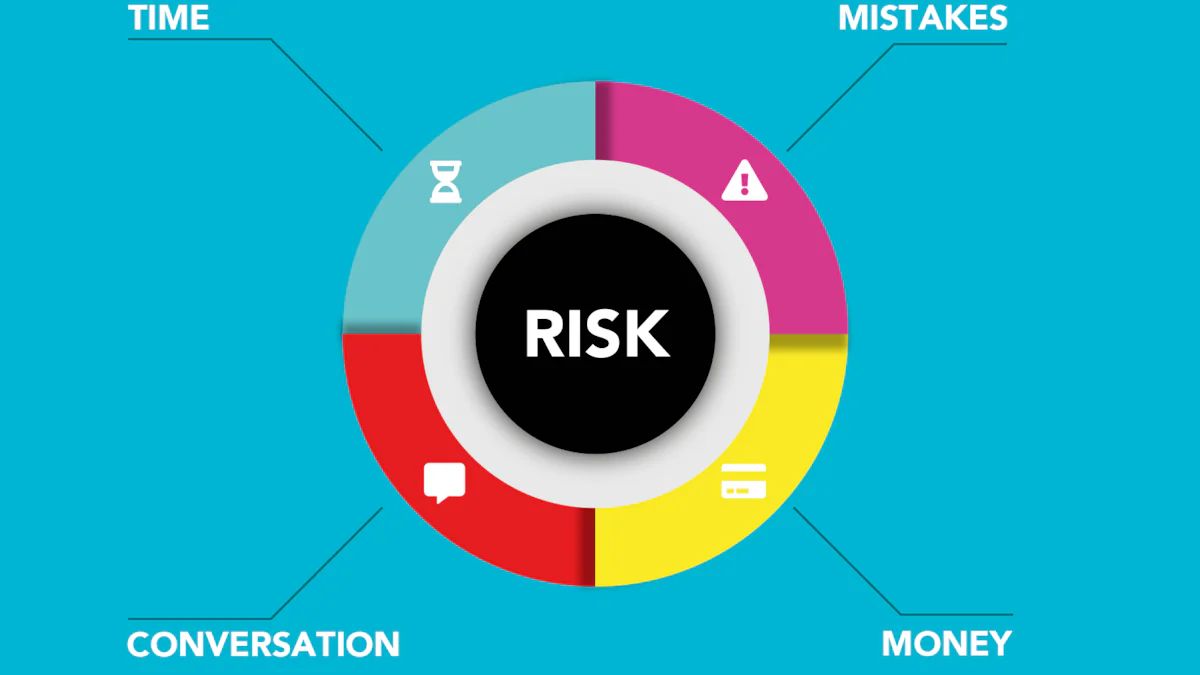Top 5 Blockchain Risk Mitigation Strategies for 2024
 Top 5 Blockchain Risk Mitigation Strategies for 2024
Top 5 Blockchain Risk Mitigation Strategies for 2024
Navigating Blockchain Risks in 2024
As we approach 2024, businesses and technology enthusiasts face the critical task of understanding and mitigating blockchain risks. The landscape of blockchain security risk is multifaceted, encompassing vulnerabilities within smart contracts, compliance challenges, node attacks, and social engineering. Proactive risk management in blockchain is essential to safeguard the integrity and stability of these ecosystems. By implementing effective risk mitigation strategies, organizations can navigate the complexities of risk management in blockchain, ensuring the long-term security and resilience of their operations.
Understanding Vulnerabilities in Smart Contracts
Smart contracts, while revolutionary, harbor inherent risks. These automated contracts are susceptible to coding errors and vulnerabilities, posing significant threats to blockchain operations. The risks in automated contracts can compromise the integrity and security of blockchain transactions, potentially leading to financial losses and reputational damage. Addressing smart contract risk is paramount for businesses and developers to ensure that these vulnerabilities are identified and mitigated effectively. By understanding the smart contract vulnerability landscape, organizations can proactively fortify their blockchain systems against potential exploits.
Addressing Compliance Challenges in Blockchain Technology
Blockchain technology introduces unique compliance risks, stemming from regulatory uncertainties and evolving legal frameworks. The regulatory risk in blockchain is further compounded by the complexities of global legal compliance challenges. Proactive measures to address compliance risks are essential for the long-term sustainability of blockchain projects. By navigating these intricate landscapes, businesses and developers can ensure that their blockchain initiatives adhere to relevant regulations, mitigating compliance risk effectively.
Mitigating Risks of Node Attacks in Blockchain Networks
Blockchain networks face inherent vulnerabilities, particularly concerning decentralized network security risk. Node attacks pose significant threats to the decentralization and security of these networks. Mitigating node attack risk requires implementing robust security measures, ensuring that the integrity and resilience of blockchain ecosystems are maintained. By addressing decentralized network vulnerabilities, businesses and developers can fortify their blockchain infrastructure against potential exploits, thereby safeguarding the trust and reliability of their networks.
Impact of Social Engineering on Blockchain Security
The human factor vulnerabilities within blockchain ecosystems are often exploited through social engineering risk. Social engineering attacks leverage psychological manipulation to compromise blockchain security, posing a significant threat to the integrity of these networks. Mitigating the impact of social engineering requires educating stakeholders and implementing robust security protocols. By raising awareness and fortifying defenses against psychological manipulation in blockchain, organizations can effectively mitigate social engineering risks, ensuring the trust and reliability of their operations.
Proactive Strategies for Blockchain Risk Mitigation in 2024
As we look ahead to 2024, proactive risk mitigation strategies are crucial for the stability and security of blockchain ecosystems. Understanding and addressing vulnerabilities in smart contracts, compliance challenges, node attacks, and social engineering is paramount for effective risk management. Implementing proactive measures will safeguard blockchain operations and ensure the resilience of blockchain networks in the face of evolving risks.
